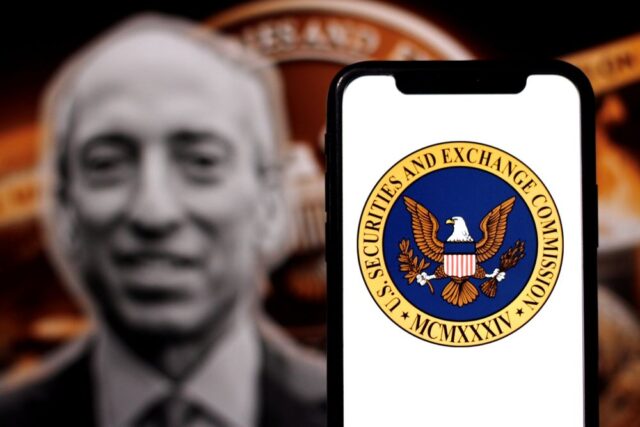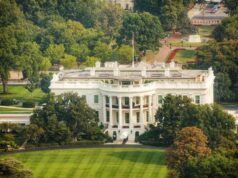President-elect Donald Trump has made it clear: regulatory reform is a cornerstone of his agenda. However, removing SEC Chair Gary Gensler, whose policies have drawn ire from the crypto community, may not be as straightforward as it seems. Legal protections for independent agency leaders could thwart Trump’s efforts, leaving Gensler at the helm despite calls for change. Will Gensler voluntarily step down, or will he withstand the political storm?
Gensler’s Legacy at the SEC: A Controversial Tenure
Appointed by President Joe Biden in 2021, Gary Gensler has overseen a period of rigorous enforcement at the Securities and Exchange Commission (SEC). The agency particularly targeted the cryptocurrency sector. Under his leadership, the SEC has filed high-profile lawsuits against leading crypto platforms and pushed for strict compliance with securities laws. Gensler’s critics, including industry leaders and members of Congress, argue that his policies have stifled innovation. He failed to provide clear guidelines for digital asset regulation.
Despite the criticism, Gensler maintains that his approach prioritizes investor protection and market stability. This hardline stance has made him a polarizing figure, especially in an industry seeking regulatory clarity and collaboration.
>>> Read more: SEC and DOJ Crack Down on Crypto Market Makers and Fraud
Trump’s Pro-Business Agenda and the Push for Change
Donald Trump’s return to the White House signals a shift in the political landscape. His focus will be on deregulation and business-friendly policies. This stance aligns with the crypto industry’s long-standing demand for a less adversarial regulatory approach. Trump has expressed dissatisfaction with the current direction of the SEC. Many industry players anticipate that his administration will attempt to replace Gensler with a chairperson more sympathetic to blockchain innovation.
However, the path to removing Gary Gensler from the SEC is fraught with legal obstacles.
Legal and Institutional Challenges to Gensler’s Removal
The SEC is an independent federal agency whose leaders are shielded from arbitrary dismissal to preserve their autonomy. Legal precedent, particularly the Supreme Court’s 1935 decision in Humphrey’s Executor v. United States, limits the President’s authority to remove independent agency heads without cause. This protection ensures that agency leadership is not subject to political whims. It requires valid grounds such as inefficiency, neglect of duty, or malfeasance for dismissal.
Given Gensler’s adherence to SEC policies and the absence of evidence of misconduct, any attempt by Trump to unilaterally remove him would likely face legal challenges. Furthermore, political analysts suggest that a drawn-out legal battle over Gensler’s position could detract from Trump’s broader agenda.
The Resignation Option: A Likely Compromise?
Historically, SEC chairs have often chosen to resign when a new administration with opposing policy priorities takes office. This voluntary departure avoids prolonged conflict and allows the incoming administration to appoint a successor more aligned with its vision.
Speculation is rife that Gensler may follow this precedent, stepping down ahead of Trump’s inauguration. Such a move would enable a smoother transition and potentially pave the way for a more collaborative regulatory environment for digital assets.
Implications for the Crypto Industry
Gensler’s departure—or continued tenure—will significantly impact the U.S. crypto industry. A leadership change at the SEC could signal a shift toward clearer regulations and reduced enforcement actions, fostering an environment more conducive to blockchain innovation. Conversely, Gensler’s retention would likely mean continuing the current enforcement-driven approach. Many in the industry view this as a barrier to growth.
For the global blockchain ecosystem, the U.S. regulatory stance remains a bellwether. As other jurisdictions adopt progressive frameworks for digital assets, the SEC’s trajectory under Trump’s administration will shape America’s competitiveness in the blockchain economy.
While President-elect Trump has expressed a desire to remove Gary Gensler as SEC Chair, legal protections and institutional norms complicate this ambition. Whether Gensler will step down voluntarily or fight to retain his position remains central to the unfolding narrative. Whatever the outcome, the decision will resonate far beyond the SEC. It will influence the regulatory landscape for cryptocurrencies and blockchain innovation in the years to come.
This legal and political standoff underscores the broader tension between regulatory independence and political agendas, a dynamic that will shape the crypto industry’s future.
Readers’ frequently asked questions
Why is Gary Gensler’s role as SEC Chair so protected compared to other government positions?
Gary Gensler’s role, like that of all SEC commissioners, falls under the category of independent federal agencies. These agencies were specifically designed to operate outside of direct political influence to ensure consistent regulation and enforcement, regardless of changing administrations. This structure is crucial in areas like securities regulation, where predictability and impartiality are key for maintaining market confidence. Unlike Cabinet members, who serve at the President’s discretion, SEC commissioners are appointed for fixed terms. They can only be removed “for cause”, a deliberate safeguard ensuring financial regulation isn’t swayed by short-term political agendas or partisan pressures. For investors and businesses, this independence helps maintain a stable regulatory framework even during political transitions.
What does Gary Gensler’s “hardline approach” to crypto regulation mean for ordinary crypto investors?
Gensler’s regulatory stance focuses on classifying many cryptocurrencies as securities, subjecting them to stringent federal laws. His goal is to protect investors from fraudulent schemes, unregistered token sales, and opaque business practices within the crypto space. For ordinary investors, this means increased scrutiny of exchanges and projects, making the market safer in the long run. However, critics argue that the lack of clear guidelines under Gensler’s tenure creates uncertainty. It potentially stifles innovation and limits the availability of crypto-based products and services in the U.S. This enforcement-heavy approach has been seen as overly aggressive by some. However, it intends to ensure greater accountability and transparency in the industry.
If Gensler resigns, will the SEC automatically adopt a more crypto-friendly stance?
Not necessarily. While a new SEC chair appointed by Trump would likely align more closely with his administration’s pro-business agenda, the SEC operates through a framework of laws and institutional protocols that don’t change overnight. Any shift toward a more crypto-friendly stance would depend on the new chair’s priorities, the commission’s composition, and the broader regulatory environment. That said, a new chair could ease enforcement pressures, focus on creating clearer regulations, and foster dialogue with the industry. This would create a more predictable environment for businesses and investors. However, it’s important to recognize that significant policy changes require time and consensus within the agency. The crypto community’s optimism about a potential leadership change reflects hope for greater collaboration and clarity, but it’s no guarantee.
What Is In It For You? Action Items You Might Want to Consider
Monitor Regulatory Developments Closely
Keep an eye on news surrounding Gary Gensler’s position and potential changes in SEC leadership. A shift in leadership could signal significant changes in cryptocurrency regulations, which might affect trading platforms, token offerings, and market dynamics. Staying informed will help you anticipate market movements and adjust your trading strategy accordingly.
Diversify Beyond U.S.-Focused Crypto Assets
While the U.S. regulatory environment remains uncertain, consider diversifying your portfolio to include cryptocurrencies and blockchain projects operating in jurisdictions with clearer or more favorable regulatory frameworks. Regions like the European Union, with its MiCA framework, or Hong Kong, which has embraced crypto innovation, may offer opportunities less influenced by U.S. regulatory shifts.
Be Prepared for Volatility
Leadership uncertainty at the SEC and potential policy changes can lead to increased market volatility in the short term. Traders should use stop-loss orders, take-profit targets, and other risk management tools to protect their positions. If you’re trading actively, be ready to capitalize on short-term price swings while maintaining a clear understanding of your long-term goals.










